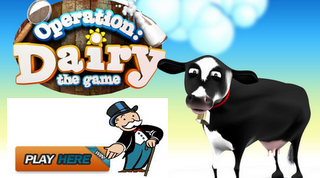Dairy Management
Dairy Farm Annual Cash Budget

A sound financial plan is essential to ensure the success or viability of any business; whether an existing business, a business you are considering pursuing, or when considering various business options available. An Annual Cash Budget is used to provide an estimate of the cash income and expenditure expected to occur over a fixed period, normally the financial year.
What is an Annual Cash Budget?
- An estimate of all the cash income and expenditure you expect over a 12 month financial year to assist with tax planning.
- The actual cash surplus or deficit you achieve over the year is reflected in the change in your bank account/overdraft balance
Why prepare one?
- Cash is the lifeblood of any business and the lack of it is the main reason why some farm businesses fail
- It is the basis for preparing your cashf low budget. The cashf low budget is monitored monthly to ensure your annual cash surplus target is reached
- Assessing new proposals/new ventures (are they viable?)
- Lending organisations require a budget for borrowing purpose
- How to prepare an Annual Cash Budget?
- Firstly estimate the income your business is likely to generate for the year ahead, and the expenses it is likely to incur.
- Use your last two to three years’ sets of financial statements from your accountant as this will tell you your actual spending habits. Budgets prepared without using historical accounts generally overestimate cash surpluses. If you do not have these, refer to the latest DairyBase Economic Survey, or ask your bank manager or accountant for average farm expenditure.
- Be conservative in the way you budget. It is better to underestimate production and payout expectations, and overestimate expenses. Then deliver above your promises.
- A common mistake is that people assume they will not have any unexpected capital expenditure, for example, a quad bike, tractor, or washing machine. Allow for unexpected items that have to be replaced or repaired if they break down.
The annual cash budget is an estimate of cash income and expenditure expected to occur over a given period, normally the financial year. The budget is not a measure of the profitability of a business, but rather if the business is sustainable in terms of income and expenditure.
It can be defined as “a medium through which farm plans can be formulated in relation to probable financial results”. The budget will give an estimate of the financial position over the year, but the primary function of the budget should be seen as an aid to decision making and the formulation of sound management plans for the business.
The completed budget can identify current management problems, and also highlight opportunities by measuring financial performance.
The Cash Surplus or Deficit
An Annual Cash Budget will tell you if you can expect a cash surplus or deficit at the end of the season. A successful and profitable business will always set some guidelines for the cash surplus they wish the business to deliver.
If your budget indicates a cash surplus, you need to ask yourself how you will use this cash surplus. A surplus allows choices to be made between reducing debt, investing back in your farm business, off farm investment opportunities or higher drawings. These decisions should be made in line with your personal and business goals.
If your budget indicates a deficit you need to ask yourself some hard questions. What is the major issue here? Is it lack of production and therefore income? Are farm working expenses are too high? Is the financial structure and funding of the business is too highly geared? Are drawings too high? Do I need to make major or minor changes to make this budget work? If the achievements of all of your objectives for the year are not possible, then decisions need to be made between all stakeholders as to where priorities lay, and the plan can be changed accordingly.
What if scenarios?
Once you have completed a budget, it is useful to look at how sensitive your forecast is to changes. Carry out some “what if” or sensitivity scenarios. e.g. What would happen if your production dropped by 5 or 10% due to drought? If payout drops by 10 or 20%? If major expenses spike upwards? This planning will help you manage the risks to your business.
























